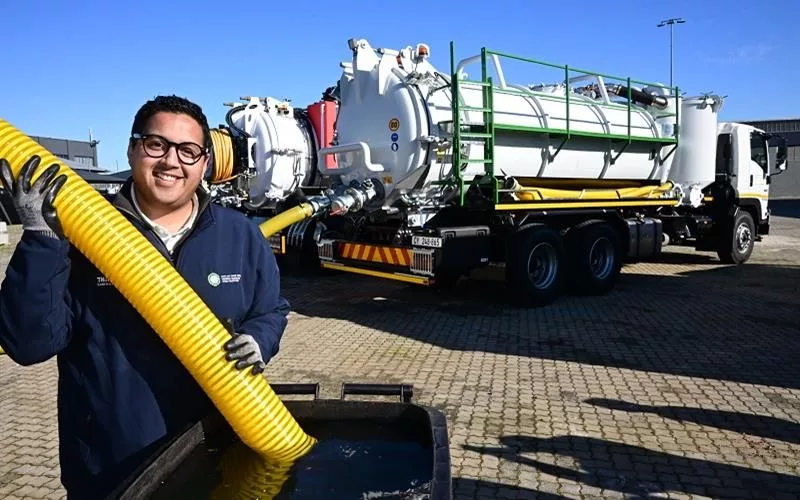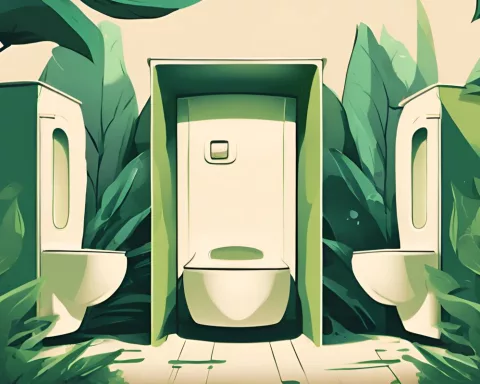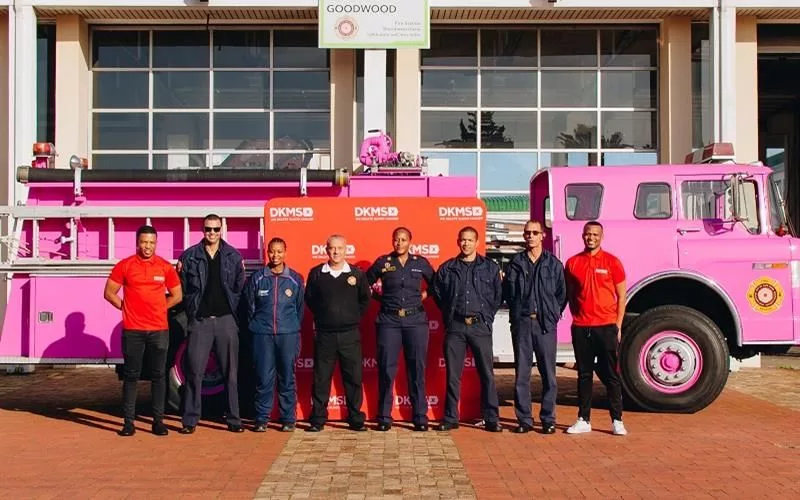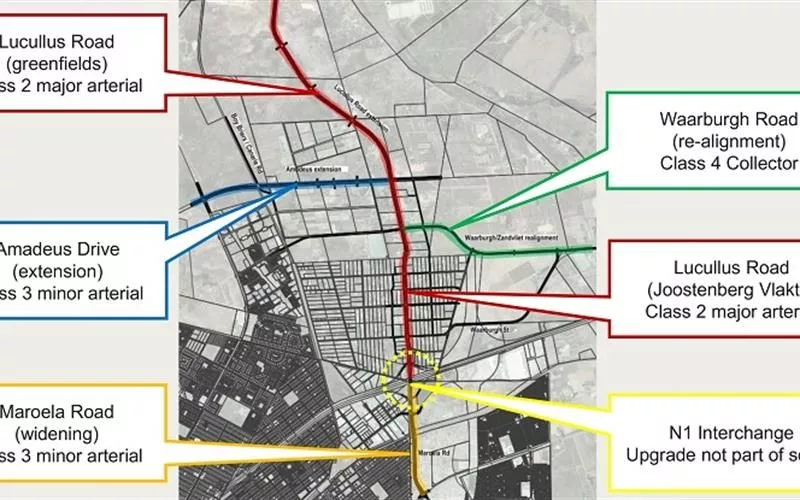Cape Town’s Water and Sanitation Directorate has invested over R105 million in a fleet of advanced vehicles and equipment to improve the city’s water and sanitation systems, including unclogging sewer blockages and ensuring water supply during disruptions. The new fleet includes advanced jet-machine trucks, combination-unit trucks, and super-sucker trucks, as well as a mobile laboratory for off-site water testing. The investment emphasizes the importance of technology in improving essential services while emphasizing the mindful behavior of residents in preserving the city’s systems.
Cape Town’s Water and Sanitation Directorate has invested over R105 million in state-of-the-art vehicles and equipment for unclogging sewer blockages, ensuring water supply during disruptions, and refueling generators at city pump stations and treatment plants. The fleet includes advanced jet-machine trucks, combination-unit trucks, and super-sucker trucks, as well as a mobile laboratory for off-site water testing. The directorate purchased 109 vehicles, replacing outdated or redundant fleet members to ensure efficient and effective service. Mindful disposal of waste is crucial to preserving the city’s water and sanitation systems.
Cape Town’s Water and Sanitation Directorate is ushering in a new era of advancement with a significant investment in state-of-the-art vehicles and equipment. This investment, valued at over R105 million, highlights the critical role technology plays in human progress and development. The upgrade is characterized by advanced capabilities and impressive capacities, making the directorate’s operations more efficient.
Significant Fleet Expansion
This substantial financial outlay has been channeled into the acquisition of light motor vehicles, specialized trucks, plant equipment, and an innovative mobile laboratory. The purpose of this new fleet is to enhance the directorate’s ability to unclog sewer blockages, ensure water supply during disruptions, and aid in refueling generators at city pump stations and treatment plants.
Over the course of the 2023/2024 fiscal year, the city has dedicated its focus to a pivotal aspect of urban infrastructure – the revamping of its fleet. The objective is to guarantee the sustainability of water and sanitation services throughout the city. Several new additions to the fleet are remarkable due to their technological advancements and augmented capacities.
Advanced Capabilities and Capacities
The new fleet now boasts three advanced jet-machine trucks, each with a commendable capacity of 7,000 litres. This is a significant enhancement from the previous jet-machine trucks that could only hold 5,000 litres. The addition of these vehicles will greatly facilitate the swift and efficient clearing of sewer blockages.
Also included in the fleet are four combination-unit trucks. These trucks, with a combined capacity of 14,500 litres, are designed to carry 9,500 litres of sewage waste and 5,000 litres of potable water. Such dual functionality advances the directorate’s goal of providing continuous services in the city. Furthermore, six super-sucker trucks, capable of extracting approximately 200 litres within six seconds through a 60-meter pipe, each with a capacity of 12,500 litres, have been added to the roster.
Mobile Laboratory and Fleet Management
An exciting addition to the fleet is a 4×4 crew cab mobile laboratory. Operated by the Scientific Services Branch, this mobile lab will dramatically improve off-site water testing capabilities, providing real-time analysis and hence, quicker solutions to potential problems.
In total, the directorate purchased 109 vehicles, with 39 being new additions and the remaining 70 replacing outdated or redundant fleet members. This strategic replacement is testament to the city’s commitment to upholding an efficient and effective fleet.
Role of Citizens in Maintaining the System
Councillor Zahid Badroodien, the City’s Mayoral Committee Member for Water and Sanitation, received the new fleet. He praised the importance of these vehicles in ensuring prompt response to service requests, and expressed admiration for the teams working tirelessly to keep the city functioning smoothly.
However, Councillor Badroodien also underscored the responsibility of the city’s residents in preserving the city’s water and sanitation systems. He encouraged mindful disposal of waste and urged everyone to refrain from misusing toilets, kitchen sinks, and sewer drains. Such actions could significantly reduce sewer overflows.
Emphasizing Technology with Mindful Behaviour
The recent fleet and equipment upgrades represent a significant milestone for Cape Town, combining innovation with essential services. This marks a step toward a more efficient, responsive, and sustainable city, where the fruits of technological advancements benefit all residents. However, it also acts as a reminder that while technology is a powerful tool, everyone must also practice mindful behavior to maintain a clean, healthy city.
For more information on how you can contribute to keeping our sewers clear, please visit the City’s website at www.capetown.gov.za/blocked-sewers.
What is the purpose of Cape Town’s Water and Sanitation Directorate’s fleet revamp?
The purpose of Cape Town’s Water and Sanitation Directorate’s fleet revamp is to improve the city’s water and sanitation systems, including unclogging sewer blockages and ensuring water supply during disruptions.
What vehicles and equipment are included in the new fleet?
The new fleet includes advanced jet-machine trucks, combination-unit trucks, and super-sucker trucks, as well as a mobile laboratory for off-site water testing.
How many vehicles were purchased in total and what is the purpose of the new fleet?
The directorate purchased 109 vehicles, with 39 being new additions and the remaining 70 replacing outdated or redundant fleet members. The purpose of the new fleet is to enhance the directorate’s ability to unclog sewer blockages, ensure water supply during disruptions, and aid in refueling generators at city pump stations and treatment plants.
What are the advanced capabilities and capacities of the new fleet?
The new fleet boasts three advanced jet-machine trucks, each with a commendable capacity of 7,000 litres, four combination-unit trucks, with a combined capacity of 14,500 litres, and six super-sucker trucks, capable of extracting approximately 200 litres within six seconds through a 60-meter pipe, each with a capacity of 12,500 litres.
What is the role of citizens in maintaining the system?
Councillor Zahid Badroodien, the City’s Mayoral Committee Member for Water and Sanitation, underscored the responsibility of the city’s residents in preserving the city’s water and sanitation systems. He encouraged mindful disposal of waste and urged everyone to refrain from misusing toilets, kitchen sinks, and sewer drains.
How does the fleet revamp emphasize technology with mindful behavior?
The recent fleet and equipment upgrades represent a significant milestone for Cape Town, combining innovation with essential services. However, it also acts as a reminder that while technology is a powerful tool, everyone must also practice mindful behavior to maintain a clean, healthy city.












